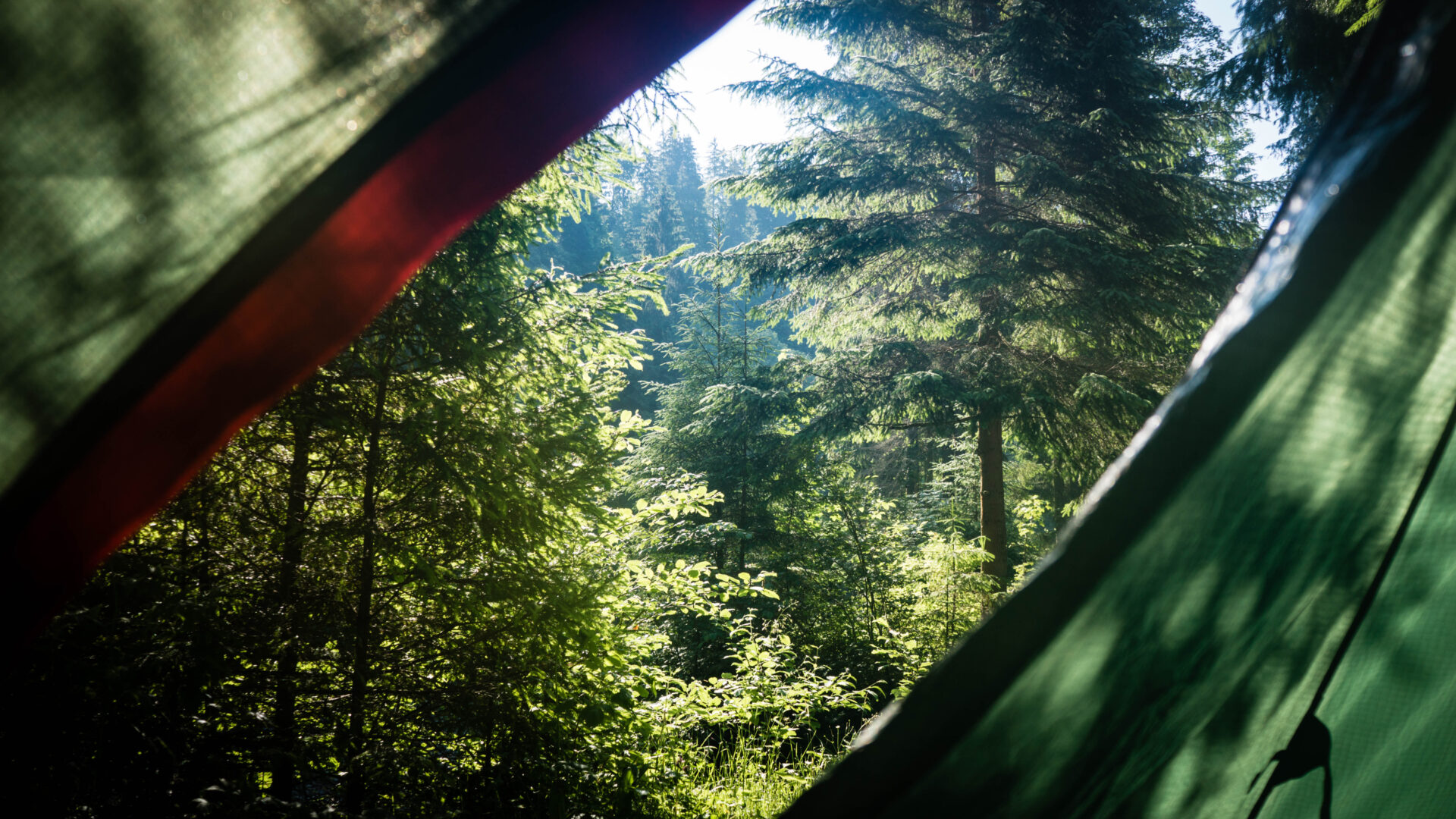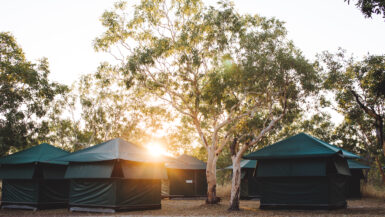The Netherlands is a country known for its beautiful landscapes, rich culture, and eco-friendly initiatives. It is no surprise that camping has become a popular activity among nature enthusiasts in the country. However, with the growing concern for the environment, many campers are looking for eco-friendly camping sites that offer sustainable practices and minimize their impact on nature. In this article, we have compiled a list of the best eco-friendly camping sites in the Netherlands, where you can enjoy a peaceful and sustainable camping experience while surrounded by nature. From solar-powered facilities to composting toilets, these campsites are leading the way in sustainable tourism and are perfect for those who want to enjoy the great outdoors while minimizing their footprint.
Introduction to Eco-Friendly Camping
Camping is a great way to explore nature and the outdoors. However, traditional camping practices can have negative impacts on the environment and local communities. Eco-friendly camping, also known as sustainable camping, is a responsible and ethical way of camping that minimizes our impact on the environment and respects local cultures and communities.
Eco-friendly camping involves choosing campsites that prioritize sustainable practices such as waste reduction, energy conservation, and water conservation. It also involves adopting eco-friendly camping practices such as using biodegradable products, leaving no trace, and supporting local businesses.
The rise of eco-tourism has led to an increase in eco-friendly camping sites around the world. The Netherlands, with its stunning natural landscapes and commitment to sustainable tourism, has some of the best eco-friendly camping sites in Europe.
In this article, we will explore the importance of eco-friendly camping, criteria for selecting eco-friendly camping sites, the top eco-friendly camping sites in the Netherlands, features and amenities of eco-friendly camping sites in the Netherlands, tips for eco-friendly camping in the Netherlands, and the benefits of eco-friendly camping for the environment and local communities. We hope this guide will inspire you to choose eco-friendly camping on your next adventure and contribute to a more sustainable future.
The Importance of Eco-Friendly Camping
Eco-friendly camping is more than just a trend – it’s a way of camping that recognizes the impact of traditional camping practices on the environment and local communities. By choosing eco-friendly camping, we can reduce our carbon footprint and preserve natural resources while supporting sustainable tourism.
Traditional camping practices such as littering, using non-biodegradable products, and overusing resources like water and energy can harm the environment and wildlife. Eco-friendly camping, on the other hand, involves practices such as using reusable or biodegradable products, minimizing waste, and conserving energy and water. These practices not only protect the environment but also promote responsible and ethical tourism.
Eco-friendly camping also supports local communities by promoting sustainable tourism. Choosing eco-friendly campsites that support local businesses and respect local cultures can help to preserve the local economy and promote cultural exchange. Additionally, eco-friendly camping can help to raise awareness of the importance of sustainable tourism and encourage others to adopt eco-friendly practices.
Overall, eco-friendly camping is an important step towards sustainable tourism and responsible travel. By choosing eco-friendly camping, we can reduce our impact on the environment and support local communities, while still enjoying the beauty and adventure of the great outdoors.
Criteria for Selecting Eco-Friendly Camping Sites
When selecting an eco-friendly camping site, there are several criteria to consider to ensure that you are supporting sustainable tourism and minimizing your impact on the environment. Here are some key factors to look for:
Sustainability Practices
One of the most important factors to consider when selecting an eco-friendly camping site is the sustainability practices that the site employs. Look for campsites that prioritize waste reduction, energy conservation, and water conservation. Some examples of sustainable practices include recycling programs, solar-powered facilities, and low-flow water fixtures.
Location and Accessibility
Consider the location and accessibility of the camping site. Choose a site that is easily accessible by public transportation or bike, or that encourages eco-friendly transportation like carpooling. Additionally, choose a site that is located in a natural area that is protected and preserved.
Support for Local Communities
Choose a camping site that supports local communities by promoting sustainable tourism and supporting local businesses. Look for sites that source their food locally, employ local staff, and offer opportunities for cultural exchange.
Environmental Education
Finally, consider whether the camping site offers environmental education programs or opportunities for visitors to learn about the local environment and wildlife. This can help to raise awareness of the importance of sustainable tourism and encourage visitors to adopt eco-friendly practices.
By considering these criteria when selecting an eco-friendly camping site, you can ensure that you are supporting sustainable tourism and minimizing your impact on the environment while still enjoying the beauty and adventure of the great outdoors.
Top Eco-Friendly Camping Sites in the Netherlands
The Netherlands is home to some of the best eco-friendly camping sites in Europe, offering beautiful natural landscapes, sustainable practices, and unique amenities. Here are some of the top eco-friendly camping sites in the Netherlands:
De Hoge Veluwe National Park
De Hoge Veluwe National Park is one of the largest and most diverse nature reserves in the Netherlands, and it’s also home to an eco-friendly campground. The campground offers spacious pitches for tents and caravans, as well as eco-cabins and lodges made from sustainable materials. The site also features solar-powered showers, a recycling program, and a restaurant that sources its ingredients locally.
Camping de Lakens
Camping de Lakens is a sustainable camping site located near the beach in Bloemendaal. The site features eco-friendly accommodations such as lodges and tents made from sustainable materials, as well as facilities that use solar energy and low-flow water systems. The site also offers a range of activities such as yoga, surfing, and cycling, as well as a restaurant that serves organic and locally sourced food.
De Kleine Wolf
De Kleine Wolf is an eco-friendly camping site located in the beautiful countryside of Overijssel. The site features spacious pitches for tents and caravans, as well as eco-cabins and lodges made from sustainable materials. The site also offers a range of sustainable practices such as recycling, energy conservation, and water conservation, as well as a swimming pool, playgrounds, and a restaurant that serves organic and locally sourced food.
Natuurkampeerterrein De Twentse Es
Natuurkampeerterrein De Twentse Es is a sustainable camping site located in the scenic Twente region of the Netherlands. The site features spacious pitches for tents and caravans, as well as eco-cabins and lodges made from sustainable materials. The site also offers a range of sustainable practices such as energy conservation, water conservation, and composting toilets, as well as a range of activities such as hiking and cycling.
These are just a few examples of the many eco-friendly camping sites in the Netherlands. By choosing one of these sites, you can enjoy a sustainable and responsible camping experience while exploring the beauty and diversity of the Dutch countryside.
Features and Amenities of Eco-Friendly Camping Sites in the Netherlands
Eco-friendly camping sites in the Netherlands offer a range of features and amenities that prioritize sustainability and responsible tourism. Here are some of the key features and amenities you can expect from eco-friendly camping sites in the Netherlands:
Sustainable Accommodations
Eco-friendly camping sites in the Netherlands offer a range of sustainable accommodations, including tents, caravans, cabins, and lodges made from eco-friendly and recycled materials. These accommodations often feature solar panels, low-flow water systems, and other sustainable practices to minimize their impact on the environment.
Facilities and Infrastructure
Eco-friendly camping sites in the Netherlands often feature sustainable facilities and infrastructure, such as solar-powered showers, composting toilets, and recycling programs. These facilities and infrastructure prioritize waste reduction, energy conservation, and water conservation.
Activities and Programs
Many eco-friendly camping sites in the Netherlands offer a range of activities and programs that promote sustainable tourism and environmental education. These may include guided hikes, wildlife watching, and workshops on sustainable practices.
Local Food and Culture
Eco-friendly camping sites in the Netherlands often prioritize local food and culture by sourcing their food locally, employing local staff, and promoting cultural exchange. This helps to support local communities and economies, while also promoting sustainable tourism.
Overall, eco-friendly camping sites in the Netherlands offer a range of features and amenities that prioritize sustainability and responsible tourism. By choosing an eco-friendly camping site, you can enjoy a unique and sustainable camping experience while minimizing your impact on the environment and supporting local communities.
Tips for Eco-Friendly Camping in the Netherlands
If you’re planning to go eco-friendly camping in the Netherlands, here are some tips to help you minimize your impact on the environment and support sustainable tourism:
Choose Eco-Friendly Camping Sites
Select an eco-friendly camping site that prioritizes sustainable practices such as waste reduction, energy conservation, and water conservation. Check for certifications like the Green Key or the EU Ecolabel to ensure that the site meets environmental and sustainability standards.
Use Eco-Friendly Products
Bring eco-friendly products such as biodegradable soap, shampoo, and sunscreen to minimize your impact on the environment. Avoid single-use plastics such as water bottles and straws, and instead bring a reusable water bottle and utensils.
Minimize Waste
Reduce your waste by bringing reusable containers and bags, and by choosing products with minimal packaging. Practice the Leave No Trace principles by packing out all of your trash and disposing of it properly.
Conserve Energy and Water
Conserve energy and water by turning off lights and electronics when not in use, and by taking shorter showers or using low-flow water fixtures. Use natural light and ventilation instead of air conditioning and electric lighting.
Support Local Businesses
Support local businesses by purchasing locally sourced food and products, and by choosing activities and tours that support sustainable tourism and cultural exchange. This helps to support local communities and economies, while also promoting responsible and ethical tourism.
By following these tips, you can enjoy a sustainable and responsible camping experience in the Netherlands while minimizing your impact on the environment and supporting local communities.
Benefits of Eco-Friendly Camping for the Environment and Local Communities
Eco-friendly camping offers numerous benefits for the environment and local communities. Here are some of the key benefits:
Reduced Carbon Footprint
By choosing eco-friendly camping practices such as using biodegradable products and conserving energy and water, we can reduce our carbon footprint and minimize our impact on the environment.
Preservation of Natural Resources
Eco-friendly camping practices also help to preserve natural resources such as water, energy, and wildlife habitats. By practicing sustainable camping, we can help to protect these resources for future generations.
Support for Local Communities
Eco-friendly camping can also support local communities by promoting sustainable tourism and supporting local businesses. By choosing eco-friendly camping sites that prioritize sustainability and cultural exchange, we can help to support local economies and preserve local cultures.
Environmental Education and Awareness
Eco-friendly camping sites often offer environmental education programs and opportunities for visitors to learn about the local environment and wildlife. This can help to raise awareness of the importance of sustainable tourism and encourage visitors to adopt eco-friendly practices in their daily lives.
Overall, eco-friendly camping offers numerous benefits for the environment and local communities. By choosing to camp sustainably and responsibly, we can help to protect the natural world, support local communities, and promote a more sustainable and ethical form of tourism.
Conclusion and Call to Action for Sustainable Tourism
Eco-friendly camping is an excellent way to enjoy the beauty of nature while also protecting the environment. In the Netherlands, there are many eco-friendly camping sites that offer a range of features and amenities, making it easy to find one that meets your needs.
When selecting an eco-friendly camping site, it is important to consider the criteria that make a site sustainable. These include things like waste management, energy use, and water conservation. By choosing a site that meets these criteria, you can ensure that your camping trip has a minimal impact on the environment.
Some of the best eco-friendly camping sites in the Netherlands include De Hoge Veluwe National Park, Camping Groenpark, and Camping BuitenLand. These sites offer a range of features, including sustainable accommodations, renewable energy sources, and eco-friendly activities.
When camping in the Netherlands, there are many things you can do to reduce your impact on the environment. These include things like using reusable containers, conserving water, and minimizing waste. By following these tips, you can help protect the environment while enjoying your camping trip.
Eco-friendly camping not only benefits the environment but also contributes to the local community. By supporting sustainable tourism, you are helping to create jobs and support local businesses. In addition, eco-friendly camping can help preserve natural resources, protect wildlife, and promote biodiversity.
In conclusion, eco-friendly camping is an excellent way to enjoy the beauty of nature while also protecting the environment. By following the criteria for selecting eco-friendly camping sites, you can ensure that your camping trip has a minimal impact on the environment. When camping in the Netherlands, there are many things you can do to reduce your impact on the environment, and by doing so, you are supporting sustainable tourism and contributing to the local community.





Leave a reply